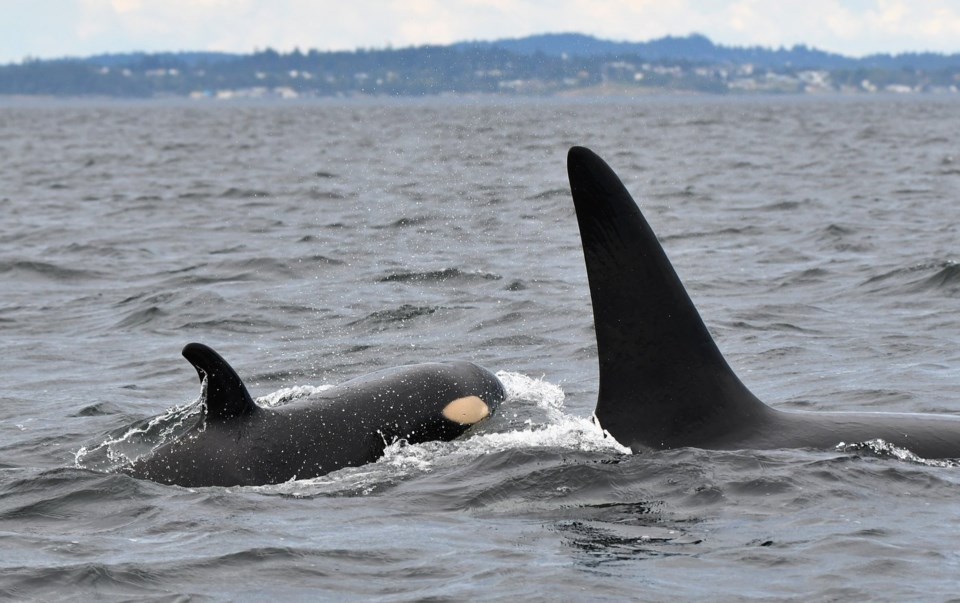A new report from a group of more than 30 experts says a population of endangered killer whales off the coast of British Columbia and Washington state is showing “no sign of recovery” and there’s an “urgent need” for robust actions to save them.

A new report from a group of more than 30 experts says a population of endangered killer whales off the coast of British Columbia and Washington state is showing “no sign of recovery” and there’s an “urgent need” for robust actions to save them.
A statement from B.C.-based conservation groups says it marks the first time scientists have proposed a road map for the recovery of southern resident killer whales on both sides of the Canada-U.S. border.
Despite measures adopted by both countries since 2019, the report says the whales face a “high probability of extinction” under current conditions.
The report makes a series of recommendations, including limiting fisheries to help the whales access their main prey, chinook salmon, along with eliminating toxic chemicals that build up in their food chains and adopting enforceable underwater noise standards.
The Fisheries Department has described the whales as a “critically endangered iconic species” of which 73 individuals remained at last census.
The federal government had determined the southern residents face “imminent threats” to their survival, but this spring it announced it would not issue an emergency protection order, saying it would adopt “incremental measures” instead.
The Fisheries, Transport and Environment departments did not immediately respond to requests for comment on the report and its 26 recommendations.
“It may take a long time, even decades, to observe the biological effects of these measures, as (the southern residents) are long-lived animals that reproduce slowly, and their recovery is expected to take time,” the Fisheries Department said in its statement announcing Ottawa’s decision in March.
The decision also took into account “social, economic, policy and other factors, and the broader public interest,” the statement said.
The whales are largely dependent on chinook salmon, and the new report says limited access to prey remains the primary constraint on their recovery.
Current government initiatives in both Canada and the United States are “insufficient” to address the problem, says the report released Monday.
Statements from the David Suzuki Foundation and Raincoast Conservation Foundation say the report is the result of a workshop held in Vancouver in March, bringing together 31 experts from Canada, the United States and Europe to consider what it will take to save the southern residents.
This report by The Canadian Press was first published July 7, 2025.
Brenna Owen, The Canadian Press